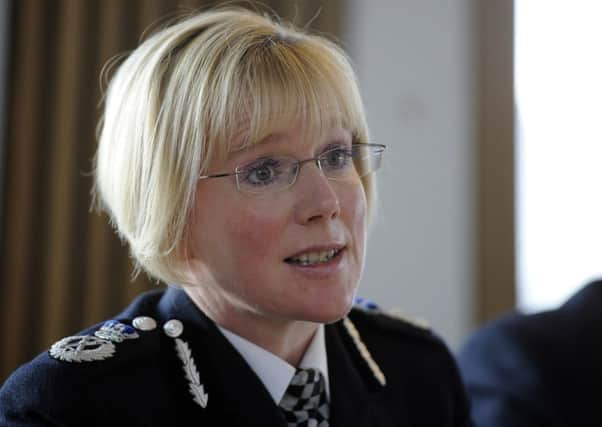Rise in crime for North ‘is down to recession’


Humberside Police chief constable Justine Curran says her force and others in the North have seen disproportionate rises in offences such as shoplifting due to the impact of austerity.
She said her patch of East Yorkshire and the Humber, which saw a rise in crime last year despite a national and Yorkshire-wide downward trend, has felt the effect of the recession more keenly than London and the South East.
Advertisement
Hide AdAdvertisement
Hide AdShe said: “Certainly you can see that the forces that have experienced the biggest rises in crime are in the North. I am not an economist, but people would tell you the impact of recession and austerity has been felt more strongly in the North. Some people would argue that London and the South East didn’t feel it in anything near the same way.
“When you talk about crime you talk about it being felt at that [lower] level in society. It is not your middle-class end, it is more down into where you have had mass worklessness and things like that. I am not sitting here saying it is all due to economics, but my assessment is that you are seeing a reflection of the impact of austerity, and it has had more of an impact in the North.”
She added: “We have traditionally been a high crime force, so in some senses there are patterns and there has been a bit of a North-South split.”
Ms Curran’s comments are the latest to draw attention to the North-South divide since The Yorkshire Post covered the issue in a series of debates last year.
Advertisement
Hide AdAdvertisement
Hide AdFigures showing a drop in the number of police-recorded offences in the year to December suggest that of the nine forces which saw an increase in crime, excluding fraud, five were in the North and only one in the South.
Humberside Police has lost hundreds of officers since the Government slashed its budget in 2010. About 200 officers and up to 600 police staff will go in the next five years as part of plans to save a further £30m.
As part of a restructure the force will scrap geographical divisions and engage with residents more through new technology.
Ms Curran said she was frustrated by the emphasis placed on statistics, and said tackling crime only represented 20 per cent of her force’s work.
Advertisement
Hide AdAdvertisement
Hide AdShe said: “My belief is that we are here to try and achieve that sense of wellbeing in this area. That is a very broad church. We don’t want people to experience harm, but that manifests itself in lots of different ways.
“For me it is about how people feel about this area, how we can contribute to this area improving and being the best it can be. That may be something that has gone out of fashion but for me it is the essence of what we do. It is like parenting, we are trying to get this area to be the best it can be.
Separately, Mark Burns-Williamson, police and crime commissioner for West Yorkshire, says there is a North-South divide when it comes to funding.
He says largely urban forces such West Yorkshire, which have low tax bases, are disproportionately reliant on central Government funding and suffering most as a result of cuts.
Advertisement
Hide AdAdvertisement
Hide AdMr Burns-Williamson, whose force only gets around a fifth of its funding from council tax, said he had campaigned since he was elected to get a fairer deal.
He said the funding settlement was “stacked against” his force and added: “We are told there is a review that is being looked into within the Home Office but I don’t expect it to happen before the General Election.”
A Home Office spokesperson said: “Under this government, overall crime is down by more than 10 per cent according to both the independent Crime Survey and police recorded crime. The evidence is clear - police reform is working and crime is falling.
“It is for chief constables to make sure all appropriate action is taken against crime in their areas and Police and Crime Commissioners to hold forces to account on behalf of local people.”